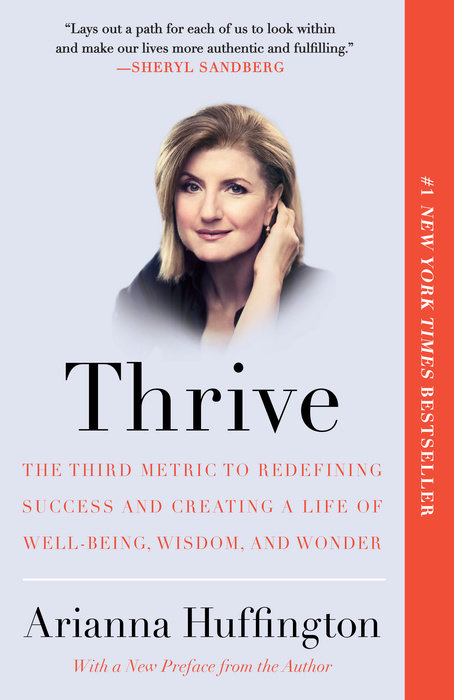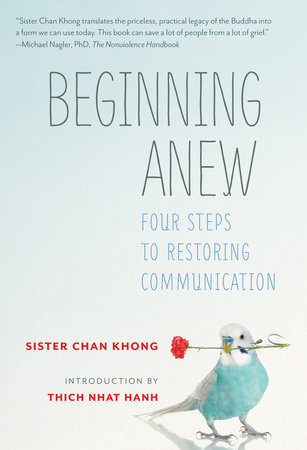These ideas may help you care for your loved one while keeping up your career.
YOU MIGHT ALSO LIKE
CLEAR ALL
BY TOPIC
BY TEACHER
BY TYPE
FILTER

TOPIC
- Well-Being (47)
- Communication Skills (41)
- Handling a Loved One’s Illness (36)
- Self-Care (28)
- Compassion Fatigue (24)
- Marriage (24)
- Burnout (22)
- Cancer (19)
- Stress Management (19)
- Dementia (18)
- Work Relationships (17)
- Emotional and Mental Health (15)
- Neurodiversity (15)
- Family Dynamics (14)
- Happiness (14)
- Resilience (14)
- Intimacy (13)
- Offering Support to Others (13)
- Divorce and Breakup (12)
- Neuroscience (12)
- Self-Development (12)
- Asking for Help (11)
- Mindfulness (11)
- Setting Limits and Boundaries (11)
- ADD/ADHD (10)
- Work Ethic (10)
- Authenticity (9)
- Belonging (9)
- Leadership (9)
- Parenting (9)
- Productivity (9)
- Relationship with Time (9)
- Autism (8)
- Awareness (8)
- Compassion (8)
- Friendship (8)
- Meditation (8)
- Self-Discovery (8)
- Self-Love (8)
- Self-Reflection Practices (8)
- Stress (8)
- Time Management (8)
- Toxic Relationships (8)
- Conflict Resolution (7)
- Empathy (7)
- Forgiveness (7)
- Goal Setting (7)
- Mind-Body Connection (7)
- Mindfulness Practices (7)
- Search for Purpose (7)
- Self-Acceptance (7)
- Withholding (7)
- Women’s Well-Being (7)
- Anger (6)
- Buddhism (6)
- Creative Well-Being (6)
- Entrepreneurship (6)
- Passive-Aggressive Behavior (6)
- Personal Development (6)
- Self-Actualization (6)
- Self-Worth (6)
- Sleep (6)
- Collaboration (5)
- Decision Making (5)
- Emotional Intelligence (EQ) (5)
- Exercise (5)
- Fellowship and Community (5)
- Finding Meaning (5)
- Focus (5)
- Gratitude (5)
- Guilt (5)
- Letting Go (5)
- Motherhood (5)
- Motivation (5)
- Neuroplasticity (5)
- Positive Psychology (5)
- Presence (5)
- Self-Compassion (5)
- Self-Control (5)
- Self-Healing (5)
- Sex (5)
- Activism/Service (4)
- Addiction (4)
- Anxiety (4)
- BIPOC Well-Being (4)
- Child’s Trauma (4)
- Connection (4)
- Death or Loss of a Loved One (4)
- Dysfunctional Childhood (4)
- Emotional Labor (4)
- Endurance (4)
- Female Empowerment (4)
- Growth Mindset (4)
- Identity (4)
- Inner Life (4)
- Inner Peace (4)
- Intention (4)
- Joy (4)
- Memoir (4)
- New Relationships (4)
- Physical Health (4)
- Quitting Your Job (4)
- Relationship with Money (4)
- Rest (4)
- Self-Mastery (4)
- Self-Reckoning (4)
- Speaking Your Truth (4)
- Spiritual Growth (4)
- Transformation (4)
- Child’s Emotional Growth (3)
- Community Healing (3)
- Connection with Nature (3)
- Courage (3)
- Depression (3)
- Diet and Nutrition (3)
- Digital Life (3)
- Disconnection (3)
- Empowerment (3)
- Fear (3)
- Freedom (3)
- Gender Challenges (3)
- Generosity (3)
- Grief (3)
- Habit Formation (3)
- Healthy Eating (3)
- Highly Sensitive People (3)
- Honoring Emotion (3)
- Integrative Medicine (3)
- LGBTQIA Relationships (3)
- Love (3)
- Midlife Crisis (3)
- Narcissism (3)
- Negative Self-Talk (3)
- Neuropsychology (3)
- Problem Solving (3)
- Retirement (3)
- Self-Esteem (3)
- Self-Expression (3)
- Self-Realization (3)
- Shame (3)
- Social Media Addiction (3)
- Spiritual Life (3)
- Trauma Healing (3)
- Trust (3)
- Vulnerability (3)
- Young Adult Well-Being (3)
- Acceptance (2)
- Accepting Love (2)
- Adaptability (2)
- Aging (2)
- Athlete Well-Being (2)
- Attachment Theory (2)
- Black Well-Being (2)
- Chronic Health Conditions (2)
- Climate Change (2)
- Death-Positive Movement (2)
- Foster Parenting (2)
- Gender Discrimination (2)
- Global Challenges (2)
- Grit (2)
- Habits of Mind (2)
- Healing Approaches (2)
- Human Potential (2)
- Imagination and Creativity (2)
- Integrity (2)
- Intuition (2)
- Life Challenges (2)
- Living with Illness (2)
- Loneliness (2)
- Manifestation (2)
- Masculine/Feminine Dynamics (2)
- Memory (2)
- Men’s Well-Being (2)
- Mindfulness Meditation (2)
- Nonviolence (2)
- Optimism (2)
- Passion (2)
- Performance Pressure (2)
- Play (2)
- Psychology (2)
- Racism (2)
- Self-Employment (2)
- Self-Pressure (2)
- Social Anxiety (2)
- Social Responsibility (2)
- Spiritual Awakening (2)
- Spiritual Healing (2)
- Spirituality and Health (2)
- Talk Therapy (2)
- Tibetan Buddhism (2)
- Trauma (2)
- Values (2)
- Veteran Well-Being (2)
- Youth Activism (2)
- A Course in Miracles (1)
- Adjusting to Parenthood (1)
- AIDS (1)
- Anger Management (1)
- Awe (1)
- Biofeedback (1)
- Brain Health (1)
- Breathwork (1)
- Buddha Nature (1)
- Building Culture (1)
- Bullying (1)
- Challenges with Teens (1)
- Child’s Challenging Behavior (1)
- Codependency (1)
- Compassion Meditation (1)
- Competition (1)
- Confidence (1)
- Conscience (1)
- Criticism and Rejection (1)
- Dark Night of the Soul (1)
- Death and Dying (1)
- Death or Loss of a Parent (1)
- Despair (1)
- Dharma (1)
- Disabled Well-Being (1)
- Domestic Abuse (1)
- Eating Disorders (1)
- Ego (1)
- Embodiment (1)
- Enneagram (1)
- Failure (1)
- Fatigue (1)
- Financial Instability (1)
- Forest Bathing (1)
- Gender Justice (1)
- Guided Meditation (1)
- Holism (1)
- Hope (1)
- Hospice (1)
- Household Labor (1)
- Humility (1)
- Imposter Syndrome (1)
- Indigenous Well-Being (1)
- Infidelity (1)
- Inner Strengths (1)
- Interdependence (1)
- Journaling (1)
- Jungian Analysis (1)
- Kindness (1)
- Learning Styles (1)
- LGBTQIA Sexuality (1)
- Loss of Partner/Spouse (1)
- Love Languages (1)
- Lovingkindness (1)
- Lovingkindness Meditation (1)
- Managing Energy (1)
- Mental Health Challenges (1)
- OCD (1)
- Perception (1)
- Philosophical Approaches (1)
- Positive Self-Talk (1)
- Post-Traumatic Growth (1)
- Psychology and Spirituality (1)
- Race and Gender (1)
- Racial Discrimination (1)
- Racial Identity (1)
- Raising Daughters (1)
- Regret (1)
- Ritual (1)
- Self-Limiting Beliefs (1)
- Self-Reliance (1)
- Sexuality (1)
- Social Psychology (1)
- Somatic Experiencing (1)
- Somatic Practices (1)
- Spiritual Crisis (1)
- Spiritual Development (1)
- Subconscious (1)
- The Divine (1)
- The Feldenkrais Method (1)
- Transitions (1)
- Trauma-Informed Therapy (1)
- Unfulfilled Career (1)
- Weight Concerns (1)
- Wholeness (1)
- Women’s Rights (1)
- Zen Buddhism (1)
FILTER

TEACHER
- Brendon Burchard (3)
- C. S. Lewis (3)
- Edward Hallowell (3)
- Elaine Aron (3)
- Elizabeth Lesser (3)
- Joan Borysenko (3)
- Ramani Durvasula (3)
- Scott Shute (3)
- Andrew Weil (2)
- Daniel Goleman (2)
- Gay Hendricks (2)
- Harville Hendrix (2)
- Helen LaKelly Hunt (2)
- Jack Canfield (2)
- John Bradshaw (2)
- John Gottman (2)
- Lodro Rinzler (2)
- Lori Gottlieb (2)
- Marie Forleo (2)
- Rick Hanson (2)
- Sharon Strand Ellison (2)
- Simon Sinek (2)
- Terri Cole (2)
- Thich Nhat Hanh (2)
- Alison Green (1)
- Anne Lamott (1)
- Arianna Huffington (1)
- Brené Brown (1)
- Cal Newport (1)
- Chan Khong (1)
- Daniel Amen (1)
- Daniel J. Siegel (1)
- Danielle LaPorte (1)
- David Whyte (1)
- Dilip Jeste (1)
- don Miguel Ruiz (1)
- Dorothy Firman (1)
- Elizabeth Gilbert (1)
- Gabor Maté (1)
- Gary Zukav (1)
- Geneen Roth (1)
- Guru Jagat (1)
- Iyanla Vanzant (1)
- Jack Kornfield (1)
- Jacqueline Carter (1)
- James Baraz (1)
- Jeff Foster (1)
- Joan Halifax (1)
- John Welwood (1)
- Karen Casey (1)
- Karen May (1)
- Kathlyn Hendricks (1)
- Kathy Freston (1)
- Kelly McGonigal (1)
- Kenneth Pelletier (1)
- Kim Eng (1)
- Linda Graham (1)
- Louise Hay (1)
- Maria Sirois (1)
- Marianne Williamson (1)
- Mark Victor Hansen (1)
- Martin Seligman (1)
- Maya Angelou (1)
- Melanie Joy (1)
- Michael Bernard Beckwith (1)
- Moshé Feldenkrais (1)
- Noah Elkrief (1)
- Oprah Winfrey (1)
- Prince EA (1)
- Ram Dass (1)
- Rebecca Solnit (1)
- Rich Fernandez (1)
- Rich Roll (1)
- Russell Brand (1)
- Sam Harris (1)
- Sharon Salzberg (1)
- Shefali Tsabary (1)
- Stan Tatkin (1)
- Stephen Covey (1)
- Tara Brach (1)
- Terry Real (1)
- The Dalai Lama (1)
- Thubten Chodron (1)
- Tony Gaskins Jr. (1)
- Yongey Mingyur Rinpoche (1)
- Zainab Salbi (1)
The Buddha Walks into the Office | Lodro Rinzler | Talks at Google
Lodro Rinzler


There are known concerns about this teacher’s actions. Please see our Teacher Policy in the footer menu on this page for more information.










